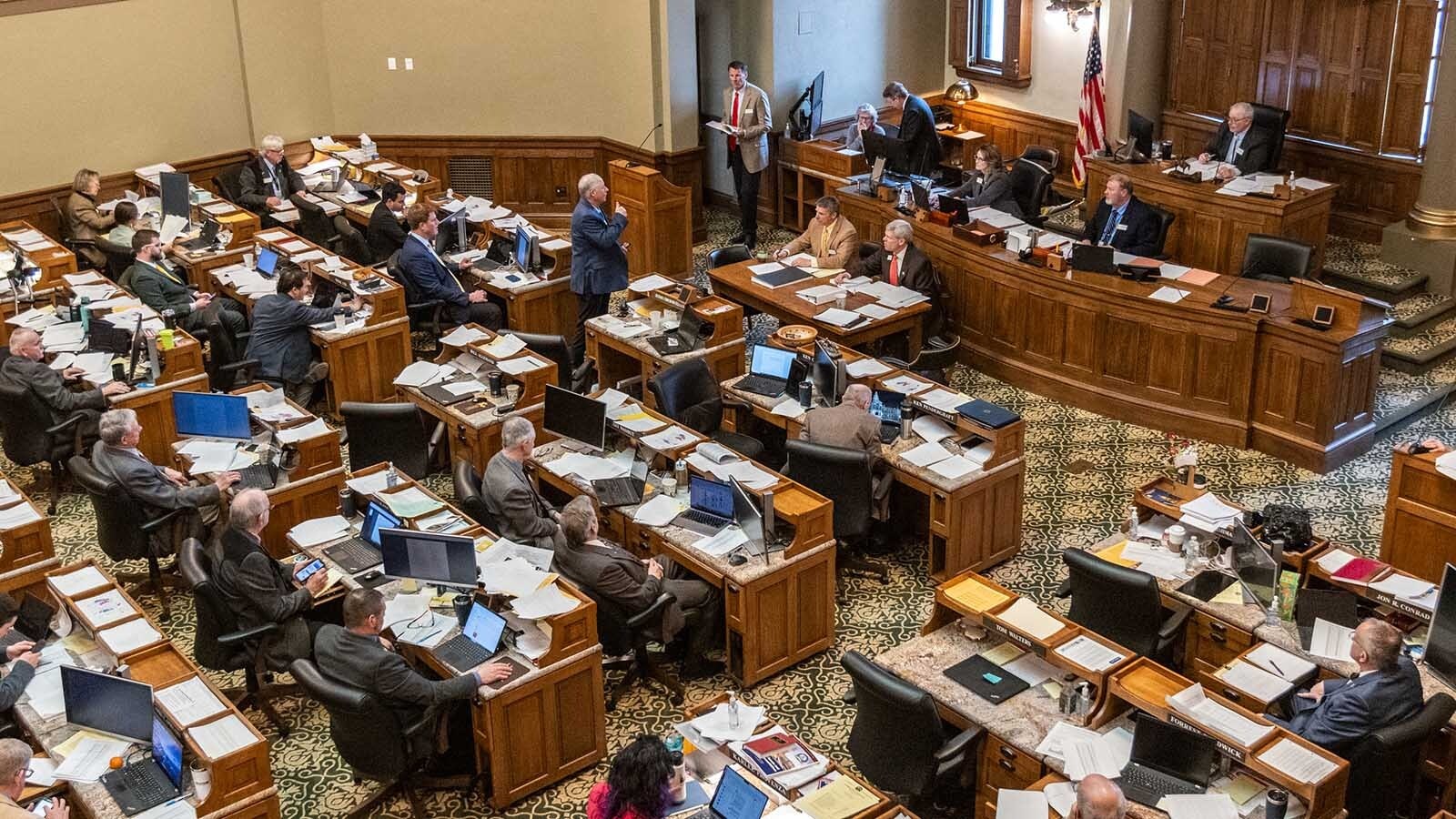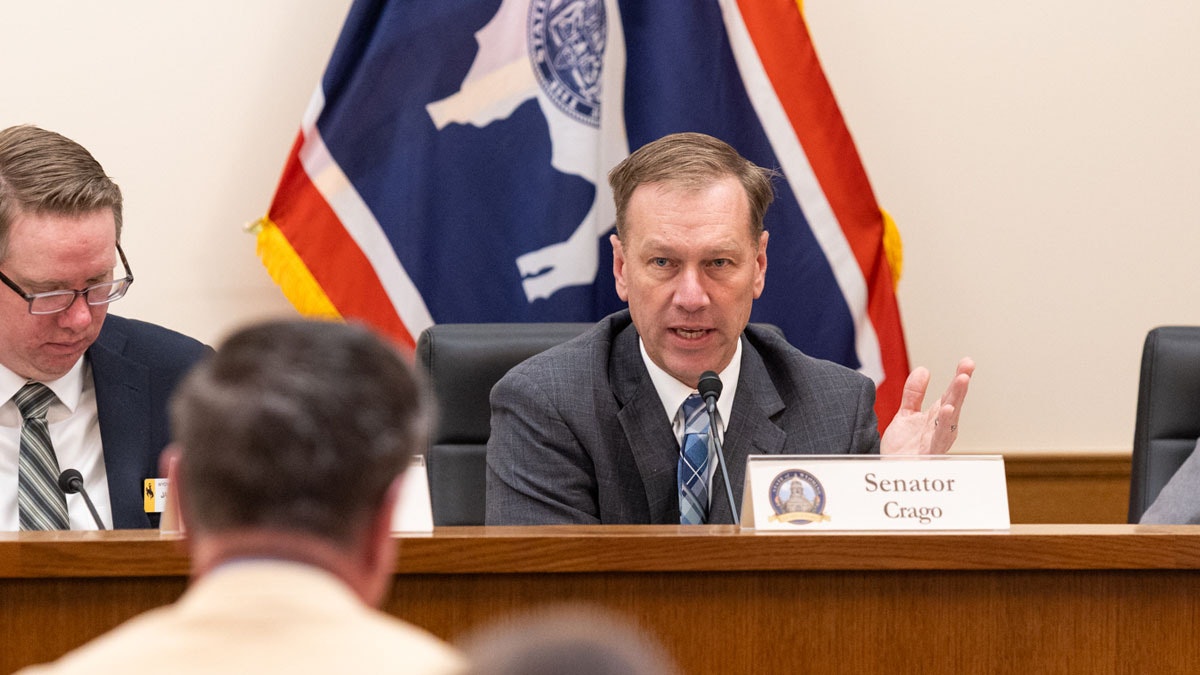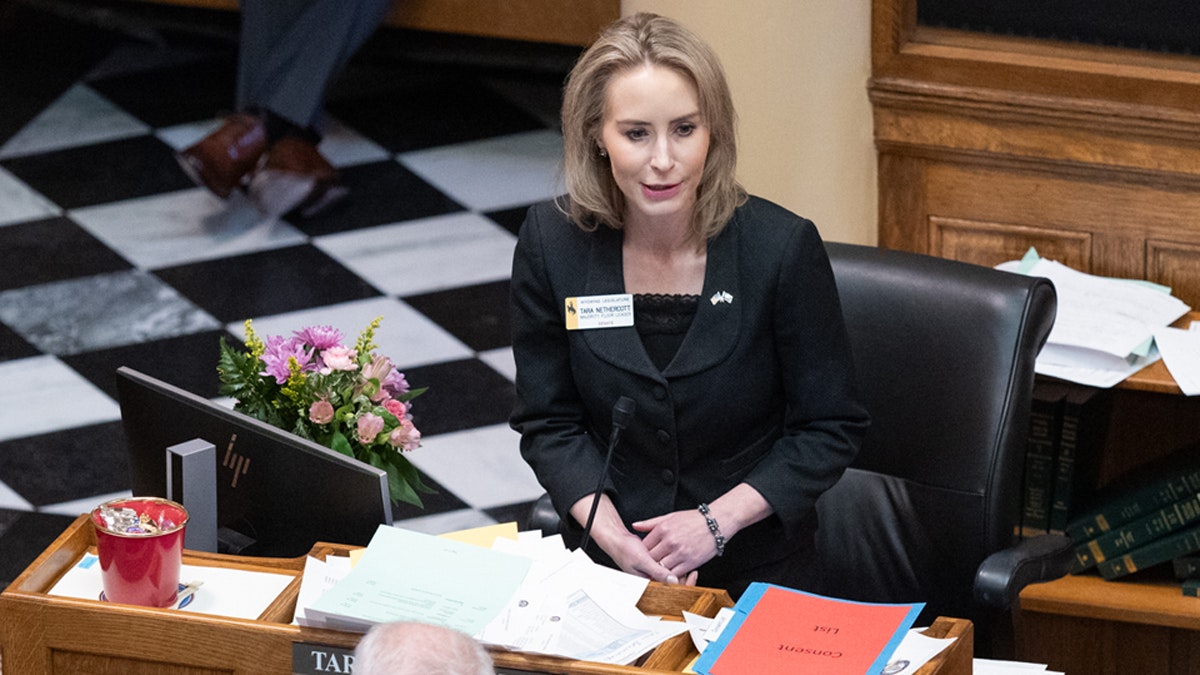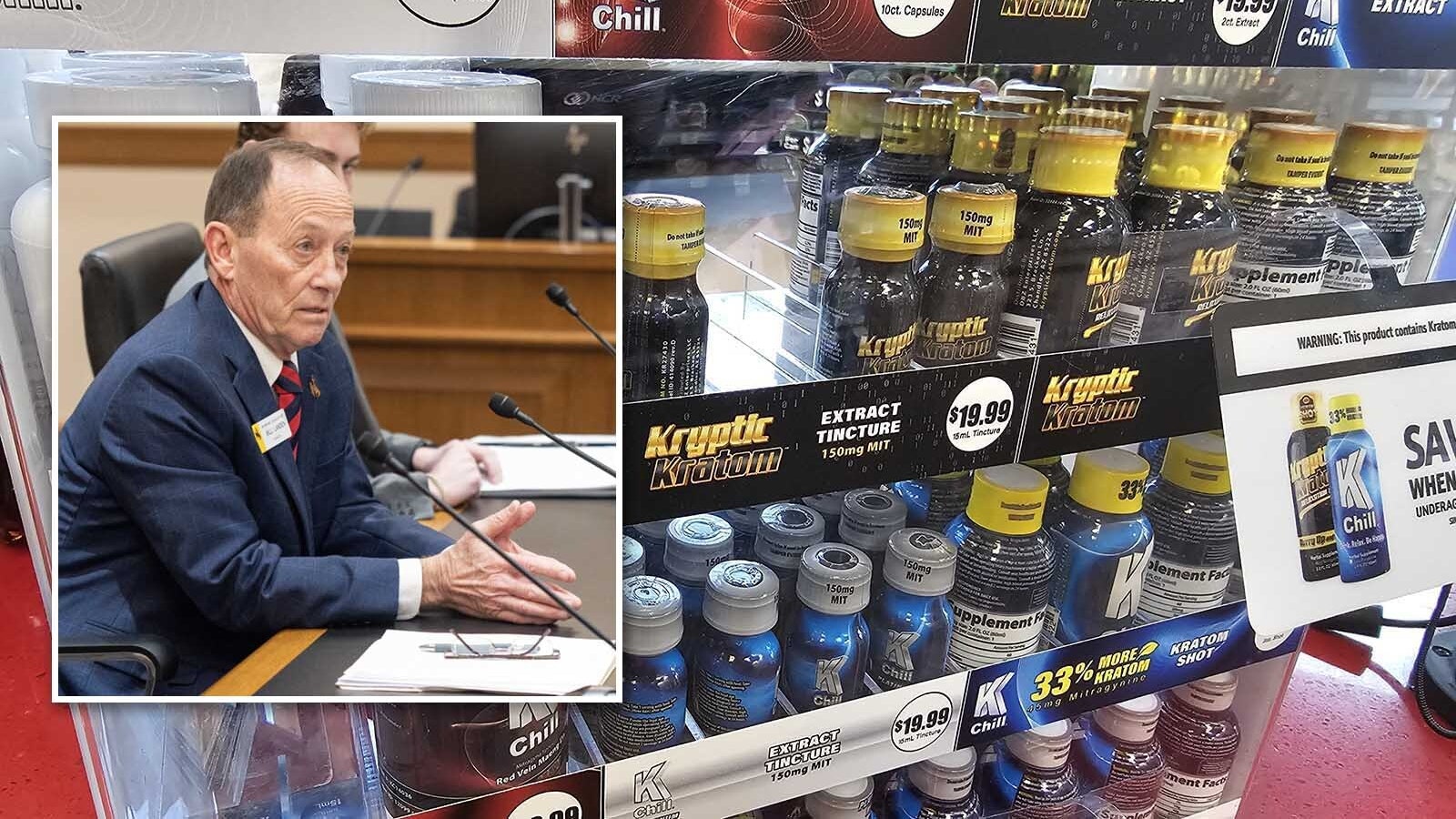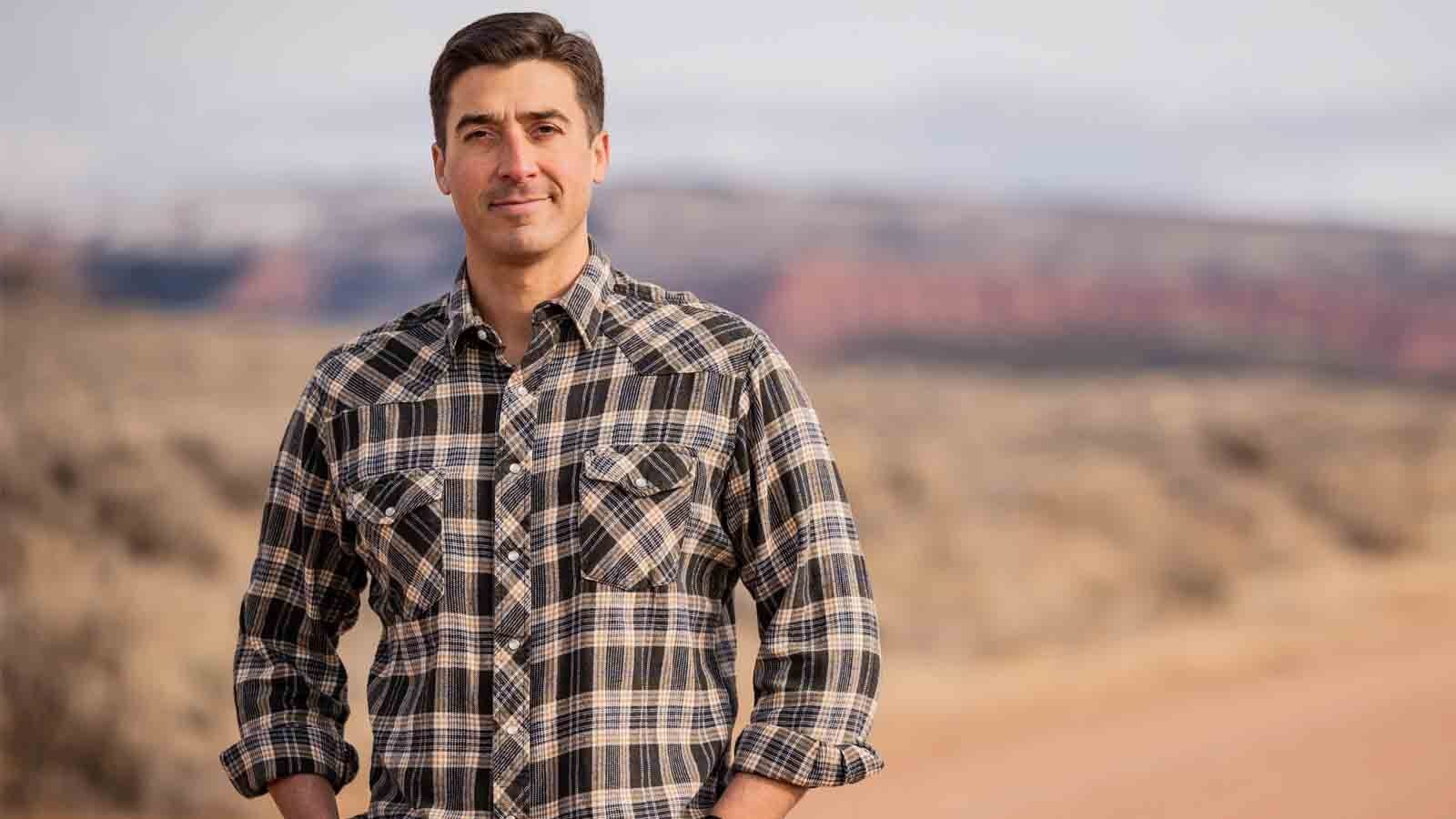When Republican voters show up to vote in the primary election this August, they’ll get a choice between candidates that likely fall into one of two camps.
Those who generally support most of the bills that have passed out of the Wyoming Legislature the last few years and the leadership of the body will likely vote for a candidate supported by or in alignment with the Republican Wyoming Caucus.
Voters seeking a vivid change to the makeup of a Legislature they believe to be compromised by Republicans failing to adhere to the party’s more conservative values will likely vote for a candidate supported by or in support of the Wyoming Freedom Caucus.
It’s been less than a week since the Legislature adjourned and at least seven candidates for the Legislature around the state have already formally announced they are running for election or reelection this year. Many more are expected to declare their candidacy in the coming weeks with a May 31 filing deadline looming.
How the Freedom Caucus decides which new candidates to support will require a vetting process, said its chairman state Rep. John Bear, R-Gillette.
“We’ll have to vet some of these candidates to see if they’re aligned with us, and if they are, we’ll probably support them in some way,” he said. “The idea is to get the Legislature to be more red, so if that’s possible by endorsing candidates we’ll probably look at doing that.”
The Plans
Rep. Barry Crago, R-Buffalo, said the Wyoming Caucus he supports wants to focus on electing “good Wyoming people” that represent conservative values. What this means to Crago is people who have spent some time in the state and used this time to immerse themselves into serving their local communities and understanding what their neighbors want.
“People that care about Wyoming,” Crago said about candidates the Wyoming Caucus will support. “This isn’t about (Washington) D.C. politics, it’s about doing what’s best for our communities back home. Those are the people we want to elect.”
Crago said Wyoming has developed a “move-in politician problem.” About a third of the Freedom Caucus are not Wyoming natives and two new candidates who recently announced they are running for the House in Johnson and Sheridan counties moved into the state within the last five years.
“People want to move here and immediately run for office and bring their D.C.-style politics with them,” Crago said. “We don’t need that in Wyoming.”
Rebekah Fitzgerald, treasurer for the Wyoming Caucus political action committee that supports the similarly named group, believes members of the Freedom Caucus often simply reject bills rather than working to find an acceptable compromise on them, something she said will be a campaign issue this election season.
“We want thoughtful candidates that are solutions-based driven and also representing their constituency-base to the best that they can,” she said.
Fitzgerald considers the upcoming election a “battle” of the two caucuses over ideological perspectives, what good legislation looks like and how to go about passing it.
“We are going to be in that spot of trying to pick up people that are more supportive of that solutions-based approach, versus that rhetoric-based approach,” she said.

Closing In On Majority
The work of the 67th Legislature, and particularly its recently completed budget session, will likely frame many of the campaign narratives this spring and summer. The Freedom Caucus also looks to build on the growth and momentum it’s seen over the past few years.
Bear said he was very disappointed by the overall spending that made it into the $11 billion biennial budget.
It shows “that we’re still spending way beyond what is necessary,” he said. “I think at a time when people are suffering, that’s just not good governance.”
He said the Freedom Caucus made some progress on social issues in the 2024 session, but attributed that success to it being an election year and people voting to look good for their constituents. The Freedom Caucus has about 26 members and is outnumbered by a small margin within the Republican Party in the House.
That makes this election season an important one for Wyoming Republicans and the Freedom Caucus, which could realistically secure a majority in the House by picking up six seats. Including the five House Democrats who usually vote in line with the Wyoming Caucus, the Freedom Caucus is at a 36-26 disadvantage. Picking up five seats would mean a 31-31 tie on votes with Democrats voting with the Wyoming Caucus, and six seats would mean a 32-30 Freedom Caucus edge.
Property Tax Gap
When it comes to property tax relief, Bear believes the legislation that passed disproportionately benefits people who own large homes or a significant amount of property. He’s frustrated that around $700 million was put into savings, while only $200 million to $250 million is being dedicated to property tax relief.
“The leadership continues to believe that the state putting taxpayers’ money into their own savings account is better than leaving it in the hands and pockets of the taxpayers,” he said.
One of the biggest arguments made against some of the more sweeping property tax relief measures supported by some members of the Freedom Caucus is that they would cause too large of an impact on local schools and governments.
“That’s not conservative and it’s certainly not a Republican value,” Bear said.
Crago has a different outlook on how the session went, and believes the budget and other bills passed provided property tax relief, new opportunities for educational school accounts, strengthened parental rights, and increased funding for mental health.
“I believe we did a good job on sending some relief and reform back to the people of Wyoming,” he said.
The Battleground
Bear said his group will look to support a candidate in House District 20 in Sublette County, where current House Speaker Albert Sommers, R-Pinedale, has said he will not run for reelection.
“There’s what I would call low-hanging fruit, there’s an open seat there and we’ll try to participate in that effort,” he said.
He also said they will look to bring more awareness to legislative leadership elections.
Sommers and Senate President Ogden Driskill, R-Devils Tower, made numerous decisions over the last two years that determined the overall fate of legislation and representation on certain committees.
In the House, there could be a potential race for the next speaker between Majority Floor Leader Rep. Chip Neiman, R-Hulett, and Speaker Pro Temp Rep. Clark Stith, R-Rock Springs.
Neiman is a member of the Freedom Caucus and Stith is one of the prominent faces of the Wyoming Caucus.
“If you want status quo, then you should elect people who have been running this for the last couple decades,” Bear said. “If you want to find change, you’re going to have to find candidates that are interested in change, who will elect leaders who are interested in change.”
As far as deciding whether to support new candidates, Bear said the Freedom Caucus will need to see which legislators do and don’t run for reelection and which newcomers throw their hats in the ring.
Crago said he expects the Wyoming Caucus to support incumbents and newcomers.
“There’s a lot of incumbents that have done a good job that we want to help because they’ve done well for Wyoming and will continue to do well for Wyoming,” he said. “But there’s new people that are willing to run for office that could do that as well.”
Fitzgerald takes a little more pessimistic perspective and believes the current political environment discourages well-qualified people from running for office for the first time.
“It’s unfortunate because at the end of the day the Wyoming Legislature is a citizen’s legislature,” she said. “We need people from all walks of life and perspectives to step up.”
She’s unsure how the Wyoming Caucus will support even some of its leading members, but expects her group to put a particular emphasis on supporting those like Stith and Crago who may have a target on their backs because of the prominent, public-facing role they’ve played in the caucus.
“They’re put forward as painting what the opposite of what the Freedom Caucus is,” she said. “These people are visible because they are leaders and they’re getting things done. That draws opinions and we understand that.”

What About The Senate?
Although Bear said the Freedom Caucus doesn’t plan to formally support or endorse Senate candidates, Fitzgerald said the Wyoming Caucus is open to doing so as she believes the Freedom Caucus also influences this chamber.
“When that means supporting Senate candidates that are more thoughtful in their approach and looking more to the future with how we build out infrastructure and have those conversations, we’re going to support people like that on the Senate side,” she said.
In their end-of-year 2023 campaign filing report, the Wyoming Caucus PAC reported a significantly larger war chest for the upcoming elections with a balance of $126,041, compared to the $29,025 the Freedom Caucus PAC had in the bank.
Bear said he’s unsure if the Washington, D.C.-based State Freedom Caucus Network, which the Wyoming group is aligned with, will provide any financial support for the 2024 races, but he expects most of the fundraising efforts to be local.
“I have not had those conversations with the Network,” he said.
He sees his caucus’ mission as providing truthful information to voters and will kick off what he describes as the first of a “plethora” of virtual town halls this election season Thursday night, recapping the budget.
“We’ll be out there quite vocal,” Bear said. “We intend to get the word out as to what our members stand for and what we as an organization are prepared to do for the people of Wyoming.”
Leo Wolfson can be reached at leo@cowboystatedaily.com.

